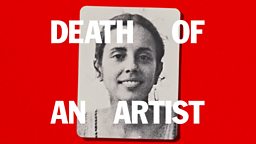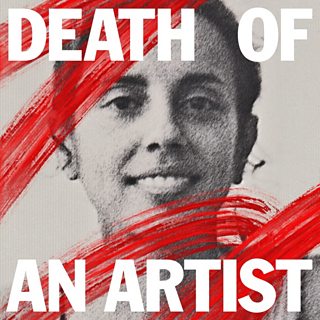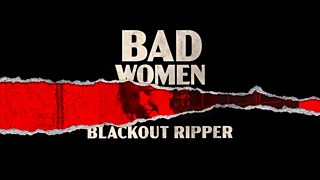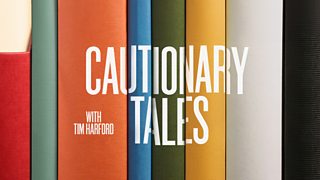A shock death the art world no longer talks about
You won’t read about it in the textbooks.
It’s not a story plastered on the walls of art galleries.
But the terrible end to the marriage of artists Carl Andre and Ana Mendieta in September 1985 is a black stain on a cultural behemoth.
American curator Helen Molesworth says most people in the art world do not want to talk about it.
So, in Death of an Artist, new to Â鶹ԼÅÄ Sounds, she goes digging.
To find out what really happened when Mendieta plunged to her death from the 34th floor of a New York apartment building.
And to answer a timeless question: can you separate the art from the artist?

A viscerally different creator
Mendieta was not a conventional 1970s artist.
Sent to America as a refugee as a young teenager, she was remembered at art school as experimental, even “a little gross”, finds Molesworth.
Her artistic approach was to use her body in groundbreaking ways, to simulate death and use real blood and human hair to shock and inspire. Feisty, fiery and focused, she was unforgettable.
As Death of an Artist explains: “Everybody remembered her – not everybody liked her.”
To forge her way in an exclusive world, she moved to New York City, to join a small group of other female artists ploughing their course through an incredibly white and male-dominated art milieu.
Her work, such as the crime-scene inspired Moffitt Building Piece and the naked, flower-covered Silueta series, broke cultural norms and got her noticed.
Mendieta stood out. Precisely the way she liked it.
A boundary-pushing sculptor
Young, attractive, brilliant. It was little wonder that Mendieta caught the eye of the great sculptor Andre.
Known as one of the fathers of the late 1960s/early 1970s minimalist trend, he was already well established by the time Mendieta breezed into his life.
At the time, the New York art scene was thriving – fuelled by creativity, radicalism and a healthy helping of booze in the streets of Soho. And the world was changing too, the anti-war movement in full flow and women’s voices finally on the rise.
Andre himself was helping revolutionise art, his sculptures among those literally taking culture out of the museum and into the public space. Challenging the status quo like never before.
Thrown together in that context, Andre and Mendieta were magnetic.
“Two complex and flawed humans,” Molesworth says. “Artistic powerhouses who changed how we think about art – and their fateful meeting entangled their lives and reputations for ever.”

A tragic ending
But, as Molesworth explains, this is “not a romcom”.
The events that led to Mendieta’s fatal fall five years after the two artists met are messy and complicated.
In some ways, she was always fighting against the tide, seeking to “elbow her way to a seat at the table already set aside” for her future husband.
Ambitious and determined but, as her friend Natalia Delgado outlines on the podcast, with a blossoming career that was perhaps “threatening” to her superstar husband.
Just nine months after their wedding, at 5.29am, a distressed Andre calls the police to report his wife had fallen out of the window. He tells the operator it is suicide. Voice shaking, he is unable to articulate exactly what happened – and the life of a hugely talented artist is tragically over at just 34 years old.
Andre was arrested and charged on suspicion of her murder, but was acquitted in 1988.
A mystery to solve
If anything, Mendieta’s death only turbocharged her reputation. Legions of artists, mostly women, were inspired by her work, reenacting her creations and making it personal.
Andre’s career continued, unabashed – but the case highlights once again that tormenting question of art v artist.
Does a questionable backstory disqualify someone’s work from fame and reverence? Can artistic genius be capable of such violence?
In the course of her quest for truth, Molesworth has found a “community at odds with itself”. An art world that refuses to discuss the blood-spattered elephant in the room.
What really happened to Ana Mendieta – and why does no one want to talk about it?
Discover how her search unfolds by listening to Death of an Artist now on Â鶹ԼÅÄ Sounds
More from the Â鶹ԼÅÄ
-
![]()
Bad Women
The extraordinary stories of the victims of wartime London's Blackout Ripper.
-
![]()
Cautionary Tales with Tim Harford
We tell kids unsettling fairy tales to teach them life lessons, but Cautionary Tales are for grown ups – and they are true. They'll delight you, scare you, and make you wiser.
-
![]()
Revisionist History
Malcolm Gladwell's journey through the overlooked and the misunderstood.
-
![]()
Murder They Wrote with Laura Whitmore and Iain Stirling
Laura Whitmore and Iain Stirling dive into some of the world's most jaw-dropping crime stories.





